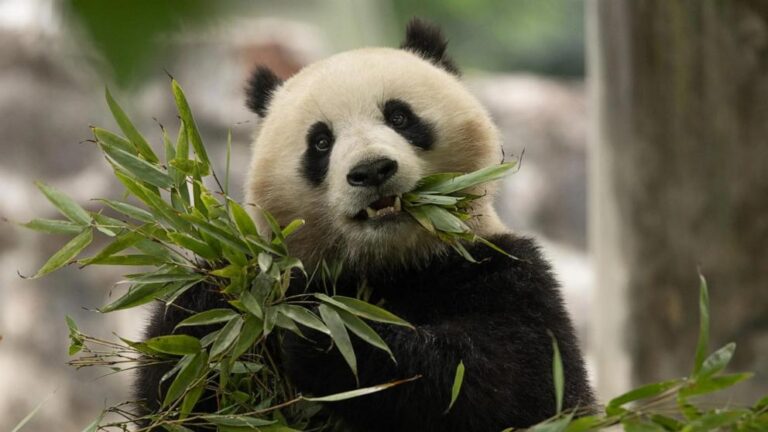Meet Baoli and Qinbao, the pair of pandas heading to the capital!
A pair of giant pandas will soon be relocated from China to Washington, DC, marking the continuing conservation success of the Smithsonian’s National Zoo and Conservation Biology Institute.
Two of the rarest species of the bear family are due to arrive in the nation’s capital by the end of the year, the National Zoo said on Wednesday.
Bao Li, the first of the two bears [BOW-lee]Bao Li, whose name means “treasure” or “lively” in Mandarin, is a two-year-old male born at the China Conservation and Research Centre for the Giant Panda (CCRCGP) in Sichuan province. Bao Li’s mother, Bao Bao, was born at NZCBI in 2013.
The second is Qing Bao [ching-BOW]is a two-year-old female whose name means “green” and “treasure” and was born at CCRCGP.
“We are pleased to announce the start of a new chapter in our breeding and conservation collaboration by welcoming two new bears to Washington DC, including offspring of our beloved panda family,” NZCBI John and Adrian Marrs Director Brandy Smith said in a statement.
First lady Dr. Jill Biden announced the pandas’ return to the nation’s capital in a video announcement, joined by Smithsonian Institution Administrator Lonnie G. Bunch III and Mr. Smith.
The bear and its animal care team will be transported from China to Washington, DC, via dedicated air and ground shipping by the zoo’s partner, FedEx.
“I am honored to be part of this next step. [NZCBI’s] “We are committed to supporting the giant panda conservation program by providing the safest and most comfortable transportation possible for these beloved animals,” Richard W. Smith, president and CEO of FedEx Air and International, said in a statement.
The news comes just six months after giant pandas Tian Tian, Mei Xiang and their cub Xiaoqiji left for China in November last year, sparking an outpouring of farewells from millions of panda fans of all ages across the country.
According to the National Zoo of New Zealand, over the past 50 years the NZCBI has maintained one of the world’s leading giant panda conservation programmes, which has helped move the animal from ‘endangered’ to ‘vulnerable’ on the global list of threatened species.
“This historic moment is clear evidence that our collaboration with our Chinese colleagues has had an undeniable impact,” Smith said. “Through this partnership, we have increased our shared understanding of how to care for these beloved bears and what it takes to protect wild pandas and preserve their native habitat.”

